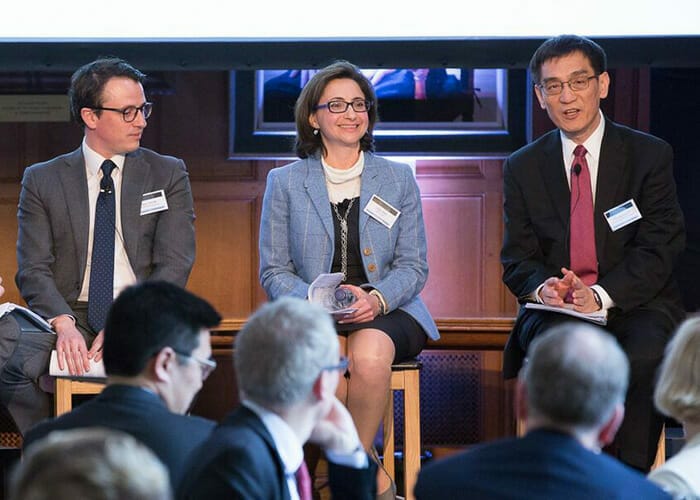Keith Ambachtsheer, Director Emeritus, Rotman International Centre for Pension Management argues that good governance begins with having “the right team in the room.”
This means robust human resource teams, the ability to address issues around understaffing and raising the effectiveness of board members.
“Board governance is still a work in progress today,” he argues, speaking at the Fiduciary Investors Symposium at Rhodes House, Oxford during a panel on governance in the investment industry. Ambachtsheer says good governance also improves returns.
“There is a return differential in favour of better governance,” he argues, linking strong governance to a strong impact on growth over time. “Those that spend that extra money produce higher returns.”
Fellow panellist Roger Urwin, Head of Content at Towers Watson believes an organization’s culture lies at the heart of its ability to improve governance.
“Culture is the fuel to how organizations are powered: culture is hugely important.” He argues that culture is specific to individual organizations, ruling out any “single best practice,” although he says culture together with leadership are the two conduits to good governance.
Organizations need to nurture and encourage culture even once it is established, he warns. “Left to its own devices culture declines overtime. It regresses and people don’t understand this.”
He suggests organizations “actively manage” culture so that it is vibrant and established enough to withstand buffeting from the immediacy of business in what he calls “a balancing act.”
He also believes that incentives are the prerequisites for governance change within an organization. “Incentives have a profound impact on how institutions function.
People respond to incentives, yet incentives in the investment industry are strange at times, acting perversely. There is work to do be done here.”
Another block to good governance is the typical longevity that comes with long-established institutions.
These organizations are rarely buffeted by what Urwin calls “creative destruction” or “a burning platform.” He argues that although asset owners have capacity for taking on change, they rarely take “truly transformational” measures around governance.
Panellist Gordan Clark, professor and director of the Smith School of Enterprise and the Environment, Oxford University argues for “a revolution” in the governance and oversight of the contracts drawn up between owners outsourcing the management and investment of their assets.
Clark highlights the problems many smaller asset owners, lacking the resources to build up their own internal teams, face around outsourcing.
“Contracts for services are served up on take or leave basis with no right to negotiate a contract in a structure that privileges the supplier over the buyer,” he says.
Many smaller asset owners also lack the internal expertise to understand the contracts they have signed. Highlighting cases of external managers having a legal claim to the entire assets of fund if things go wrong, Clark wants governance to comprise “negotiating contracts, sharing pain and gain without leveraging the entire assets of the organization,” in what he calls a rewriting in favour of asset owners.
“This contract is the centre piece of the governance relationship,” he says.
He notes the trend amongst bigger organizations to bring asset management in-house because of the cost of outsourcing and the ability to oversee multiple relationships.
In an insourcing process he calls “replacing a service contract with an employment contract” Clark argues organizations have to apply their culture and values to their in-house investment teams.
Investment teams need to work to a central mission and follow “the purpose of the organization” with “integrity and sense of meaning.” He suggests investment teams have different employment contracts to other parts of an organization and warns against one function “being pitted against another”.



